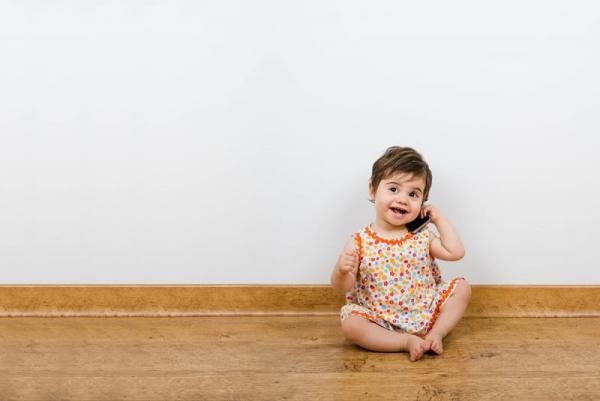
As parents, we feel excited when we see our children developing each day. As a matter of fact, babies grow so quickly that their progress may surprise us. I remember the first time my daughter said, "Mom,"� and I felt as if my heart would explode. My baby said, "Mom!" Her laughter and happy sounds were gifts given by life and they sure made my day.
In order to help our children develop language skills, it is necessary to help them explore, experiment and produce different sounds until they discover the ability to communicate. We can help them acquire these critical skills and foster their development.
Here are several ways to help your baby develop language skills:
Name different parts of the body while bathing or changing y our toddler
Take your baby's hand and point to the different features on your face, saying the name of each. Then, point to and name the same features on hers.
Sing songs to your baby
Singing to children is one of my favorite activities because music is essential for human development. When we accompany songs with body movement, we help the baby to associate a gesture with a specific sound.
Tell your child poems, riddles and tongue-twisters with different sounds
They will enjoy hearing the rhythm and cadence and repeated sounds.
Read stories
One day, my 4-month-old baby fell asleep while I was telling her a story. Although babies may not understand what the story is about, this is a good starting point to introduce them to the habit of reading.
Sit with your baby in front of the mirror so that he or she can imitate the movements you make with your mouth. Babies love mirrors and are naturally interested in faces.
When your baby babbles, try to repeat these sounds
By imitating your baby, you are initiating a dialogue and this will make him or her feel safe.
Talk to your child while doing any activity
For example, say, "You need to take a bath," "You are going to take a nap," or, "This milk is delicious." In order for the baby to acquire language skills, repetition is one of the key points.
Last but not least, it is a good idea to make eye contact while speaking softly and clearly. You may find other fun ways to establish a lasting bond with your baby.
Each child has a time to develop and mature and their progress reflects their growth. Our dialogue with them can become more complex as they begin talking. At this point, we can begin naming things and help them imitate the words. Your pediatrician may also have more ideas and activities that may help you foster your baby's language skills.
*Translated and adapted by Anders Peterson from the original article "7 consejos para estimular el habla en los bebés" by Maia Fernandez.

